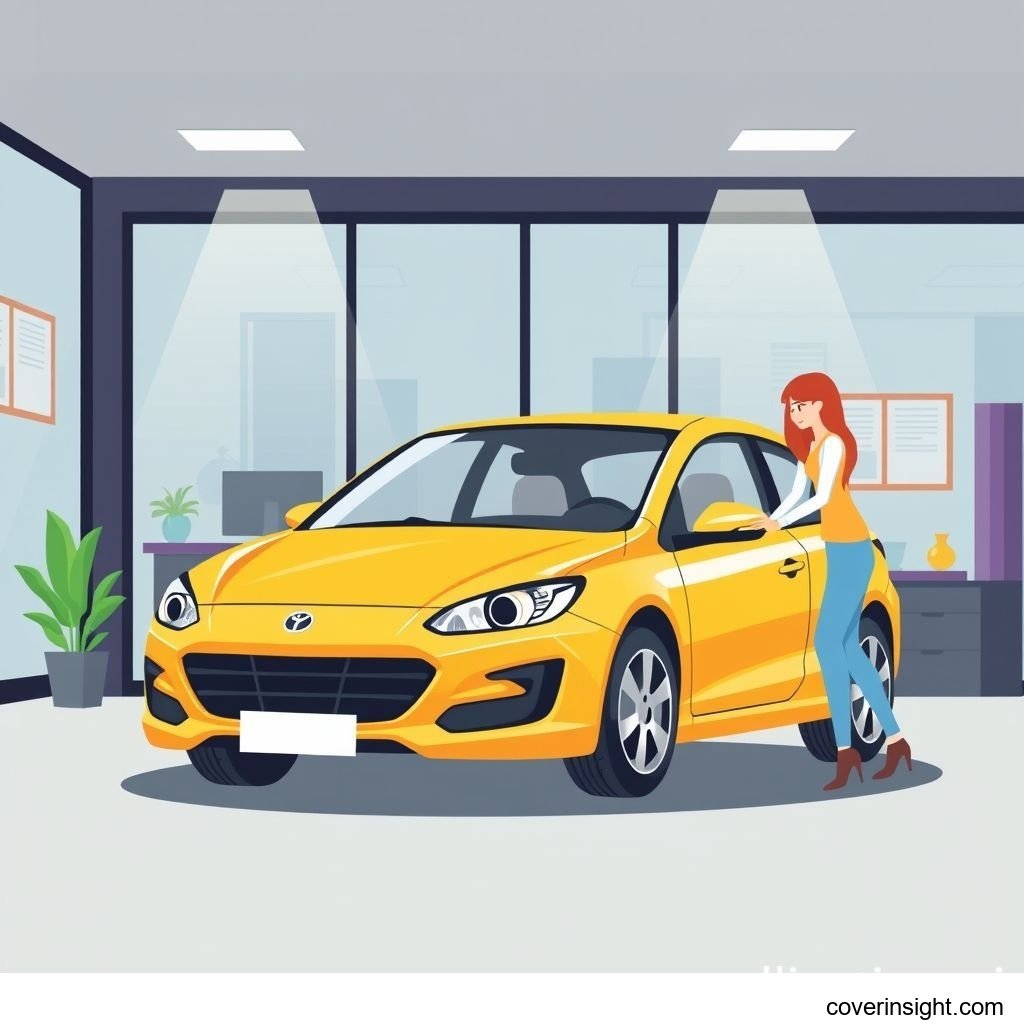Introduction to Elders Insurance in AU 2025
As Australia moves into 2025, the landscape of home insurance continues to evolve, particularly for our senior population. For many, a home represents a lifetime of memories, significant financial investment, and a secure sanctuary. Ensuring this asset is adequately protected is paramount, and this is where elders insurance plays a critical role. (EI) This comprehensive guide aims to help Australian seniors understand, compare, and smartly save on their home insurance policies. Navigating the complexities of insurance can be daunting, but with the right information, you can secure peace of mind. Protecting your home and its contents from unforeseen events is not just a financial decision; it's about safeguarding your lifestyle and future.
Understanding Elders Home Insurance Coverage Details
Securing your home means understanding what your policy truly covers. For seniors, specific needs often arise, making a detailed review of coverage essential. Elders insurance policies are designed to protect against a range of perils, but specifics can vary widely between providers.
What’s Typically Included in Your Policy
Most standard home insurance policies for seniors in Australia offer comprehensive coverage for both buildings and contents.
-
Building Coverage: This protects the physical structure of your home, including walls, roof, floors, fixtures, and fittings. It typically covers damage from:
-
Fire and smoke
-
Storms, lightning, and hail
-
Floods (often as an add-on or specific policy)
-
Impact by vehicles or falling trees
-
Theft or malicious damage
-
Explosion
-
-
Contents Coverage: This protects your personal belongings inside your home. Items can include furniture, appliances, clothing, electronics, and other movable possessions. It's crucial to estimate the replacement cost accurately.
-
Liability Coverage: Often included, this protects you financially if someone is injured on your property and you are found legally responsible. This aspect of elders insurance is incredibly important for unforeseen circumstances.
-
Temporary Accommodation: If your home becomes uninhabitable due to an insured event, many policies will cover the cost of temporary accommodation while repairs are underway.
Common Exclusions to Be Aware Of
While policies offer broad protection, understanding exclusions is vital to avoid unwelcome surprises. Common exclusions for elders insurance include:
-
Wear and Tear: Damage due to gradual deterioration, lack of maintenance, or mould/mildew is typically not covered.
-
Pest Infestations: Damage caused by termites, rodents, or other pests.
-
Acts of War or Terrorism: These catastrophic events are usually excluded.
-
Intentional Damage: Deliberate acts of damage by you or someone living in your home.
-
Unoccupied Property: Homes left vacant for extended periods (e.g., 60-90 days) may have reduced or no coverage unless specific arrangements are made.
-
Pre-existing Damage: Issues present before the policy commenced are not covered.
Always read your Product Disclosure Statement (PDS) thoroughly. For more detailed information on regulations and consumer rights, refer to the Australian Prudential Regulation Authority.
Special Considerations for Home Office Equipment
The rise of remote work means more seniors are operating home offices, whether for personal projects, volunteering, or part-time work. This shift introduces new insurance considerations, especially regarding home office equipment. (HOE)
Standard contents insurance might offer limited coverage for items used for business purposes. It's crucial to confirm if your policy adequately covers:
-
Computers, monitors, and printers
-
Specialised software
-
Office furniture
-
Other tools necessary for your work
If your home office equipment (HOE) is valuable, you may need to list it separately or opt for an additional endorsement. This ensures your essential work tools are protected against theft or damage. Don't assume standard coverage is enough for your professional setup. Reviewing this specific aspect of your policy can prevent significant financial setbacks. Many insurers offer specific riders for home office equipment (HOE) to address this growing need.
Securing Valuables with Jewelry and Art Coverage
Many seniors have accumulated valuable items over their lifetime, such as fine jewellery, extensive art collections, or rare collectibles. While general contents insurance offers some protection, it often has limits on single items or categories of items. For valuable possessions, jewelry and art coverage (JAC) is often necessary.
Key aspects of specific jewelry and art coverage (JAC) include:
-
Agreed Value vs. Market Value: For unique items, an agreed value policy ensures you receive a pre-determined amount if the item is lost or damaged, rather than a market valuation at the time of loss.
-
Accidental Damage: Standard policies might not cover accidental damage (e.g., dropping a necklace). Specialised jewelry and art coverage (JAC) often does.
-
Coverage Outside the Home: Many standard policies only cover items within the home. If you travel with jewellery or loan out art, you'll need extended coverage.
It's advisable to have these items professionally valued and to provide documentation to your insurer. Discussing your specific needs for jewelry and art coverage (JAC) with your insurer is crucial to ensure these irreplaceable items are fully protected.
Navigating the Cost of Elders Insurance
The cost of elders insurance in AU can vary significantly based on numerous factors. Understanding these elements empowers you to make informed decisions and potentially reduce your premiums without compromising on essential coverage.
Key Price Factors Affecting Premiums
Several variables influence how much you pay for your home insurance:
-
Location: Areas prone to natural disasters (bushfires, floods, cyclones) or high crime rates typically incur higher premiums. Proximity to emergency services can also be a factor.
-
Property Age and Construction Materials: Older homes might be more expensive to insure due to potential maintenance issues or outdated building codes. Homes built with fire-resistant materials might attract lower premiums.
-
Sum Insured: The higher the insured value of your building and contents, the higher your premium. It’s vital to insure for the actual replacement cost, not the market value.
-
Security Features: Installing alarm systems, deadlocks, security screens, or even having a security patrol in your neighbourhood can reduce your risk profile and, consequently, your premiums.
-
Claims History: A history of multiple claims can lead to higher premiums. Insurers view this as an increased risk.
-
Excess Amount: Choosing a higher excess (the amount you pay out-of-pocket for each claim) can reduce your premium. However, ensure you can comfortably afford the excess should you need to make a claim.
-
Policy Inclusions/Add-ons: Opting for additional coverage for specific items like home office equipment (HOE) or for enhanced jewelry and art coverage (JAC) will increase the overall cost.
Smart Saving Tips for Elders Insurance
While some factors are fixed, there are several proactive steps you can take to lower your insurance costs:
-
Shop Around and Compare: Don't settle for the first quote. Get multiple quotes from different insurers. Online comparison sites can be a good starting point, but always check directly with insurers too.
-
Increase Your Excess: As mentioned, a higher excess reduces your premium. Just be sure it’s an amount you can afford if you need to claim.
-
Bundle Policies: Many insurers offer discounts if you bundle your home insurance with other policies, like car insurance or health insurance.
-
Maintain Your Home: Regular maintenance prevents minor issues from becoming major claims. Insurers appreciate well-maintained properties.
-
Install Security Features: Enhancing your home's security can significantly reduce the risk of theft and subsequent claims, leading to discounts.
-
Review Your Contents Value: Regularly update your contents sum insured. You might be over-insured if you've downsized or disposed of valuable items. Conversely, ensure your home office equipment (HOE) and any new valuable acquisitions like art are adequately covered.
-
Inquire About Discounts: Ask insurers directly about senior discounts, loyalty discounts, or discounts for professional affiliations.
-
Pay Annually: Paying your premium annually instead of monthly or quarterly can sometimes save you administrative fees.
Choosing the Right Elders Home Insurance Provider
Selecting the right insurance provider is as crucial as choosing the right policy. For elders insurance, it's not just about the cheapest premium, but also about reliability, customer service, and claims efficiency.
Comparing Insurers and Policies
When comparing, look beyond just the price. A thorough comparison should involve:
-
Coverage Limits: Ensure the sum insured for both building and contents is adequate to rebuild your home and replace all your belongings. Pay special attention to limits on high-value items, potentially needing specific jewelry and art coverage (JAC).
-
Policy Inclusions: Confirm what perils are covered and if you need specific add-ons (e.g., flood, accidental damage, motor burnout). Check if your home office equipment (HOE) is covered.
-
Excess Options: Understand the different excess levels available and their impact on premiums.
-
Reputation and Financial Stability: Research the insurer's reputation. A financially strong insurer will be better positioned to pay out claims. The Insurance Council of Australia provides valuable industry insights.
-
Customer Reviews: Read reviews about their customer service, particularly their claims handling process. Online forums and independent review sites can offer real-world perspectives.
-
Ease of Management: Consider how easy it is to manage your policy online, over the phone, or in person.
The Importance of Customer Service and Claims Process
For many seniors, clear communication and a straightforward claims process are paramount. When evaluating insurers:
-
Accessibility: Is their customer service easy to reach? Do they offer multiple contact channels (phone, email, online chat)?
-
Transparency: Do they clearly explain policy terms, conditions, and the claims process? Avoid insurers with overly complex jargon.
-
Claims Efficiency: A good insurer processes claims quickly and fairly. Look for positive feedback regarding their responsiveness and empathy during a claim. A smooth claims experience is vital when you're already dealing with a stressful event.
-
Support for Seniors: Some insurers have dedicated teams or services tailored to seniors, offering more patient and comprehensive assistance.
Adapting Your Home Insurance to Lifestyle Changes
Life changes, and so should your insurance. As seniors, significant life events like downsizing or adopting new technologies can impact your insurance needs and premiums. Proactively adjusting your elders insurance policy ensures continuous, relevant protection.
Downsizing and Its Impact on Coverage
Many seniors choose to downsize, moving to smaller homes, apartments, or retirement villages. This move significantly impacts your home insurance:
-
Building vs. Contents: If you move into a strata-titled apartment or retirement village, the building structure itself is often covered by the strata body corporate's insurance. Your primary focus shifts to contents insurance.
-
Reduced Contents Value: A smaller space usually means fewer possessions. Review and reduce your contents sum insured to avoid overpaying.
-
Security: Apartments in secured buildings or gated retirement communities might offer lower theft risks, potentially reducing your premiums.
-
Temporary Storage: If some belongings go into storage during the transition, ensure they are covered, either by your existing policy or a separate storage insurance.
-
Valuables: Re-evaluate the need for specific jewelry and art coverage (JAC) for items you retain, especially if their new environment offers different security levels.
Always inform your insurer about a change of address and property type. They can guide you on the most appropriate policy for your new living arrangements.
Managing Risk with Smart Home Technology
Modern technology offers innovative ways to enhance home security and safety, often appealing to those with elders insurance. Integrating smart home devices can not only improve your lifestyle but also potentially lower your insurance premiums by reducing risk.
Consider investing in:
-
Smart Security Systems: These include motion sensors, smart cameras, and connected alarm systems that can deter intruders and provide real-time alerts. Some systems even monitor for water leaks or smoke.
-
Smart Locks: Keyless entry systems enhance security and can alert you to unexpected entries.
-
Water Leak Detectors: Placed near water heaters, washing machines, or under sinks, these devices can detect leaks early, preventing extensive water damage—a common claim.
-
Smart Smoke/Carbon Monoxide Detectors: Connected systems offer enhanced detection and can send alerts to your phone or emergency services.
-
Remote Monitoring: Many systems allow you to monitor your home remotely via a smartphone app, providing peace of mind when you're away.
Discuss any installed smart home technology with your insurer. Many offer discounts for homes with advanced security and safety features, recognizing the reduced risk these technologies provide. This forward-thinking approach to your home protection can lead to smarter savings on your elders insurance.
Frequently Asked Questions About Elders Insurance
Here are some common questions seniors ask when considering home insurance in Australia.
-
How much does elders insurance cost?
The cost varies widely, typically ranging from a few hundred to several thousand dollars annually. Factors like your home's location, age, construction type, sum insured, and claims history all influence the premium. Comparing quotes from multiple providers is the best way to determine an accurate estimate for your specific circumstances.
-
What affects elders insurance premiums the most?
The biggest influencers are often the property's location (especially if in a high-risk flood or bushfire zone), the declared sum insured for building and contents, and the level of security features installed. Your claims history and chosen excess amount also play a significant role. Adding specific coverage for items like home office equipment (HOE) or enhanced jewelry and art coverage (JAC) will also impact the final price.
-
Is home insurance mandatory for seniors in Australia?
While it's not legally mandatory to have home insurance in Australia, it is highly recommended. If you have a mortgage, your lender will almost certainly require you to have building insurance. Contents insurance, while optional, is crucial for protecting your personal belongings. For homeowners, it's an essential financial safeguard.
-
How do I choose the best elders insurance policy?
To choose the best policy, assess your specific needs (e.g., value of contents, need for jewelry and art coverage (JAC) or home office equipment (HOE) coverage), compare quotes from several reputable insurers, carefully read the Product Disclosure Statement (PDS) for inclusions and exclusions, and consider the insurer's customer service and claims handling reputation. Don't just focus on price; consider the value and suitability of the coverage. You can find useful resources on comparison at Insurance Resources Global.
-
What are the consequences of not having home insurance?
Without home insurance, you bear the full financial burden of any damage to your property or loss of contents due to unforeseen events like fire, flood, or theft. This could mean thousands or even hundreds of thousands of dollars in repair or replacement costs, potentially jeopardising your financial stability. For those with mortgages, not having insurance can breach loan agreements, leading to severe penalties. Protecting your most valuable asset with elders insurance offers essential financial security.
Remember to regularly review your policy to ensure it continues to meet your evolving needs and provides comprehensive protection for your home and lifestyle. For more Australian-specific insurance insights, visit AU Insurance Home.








Comments